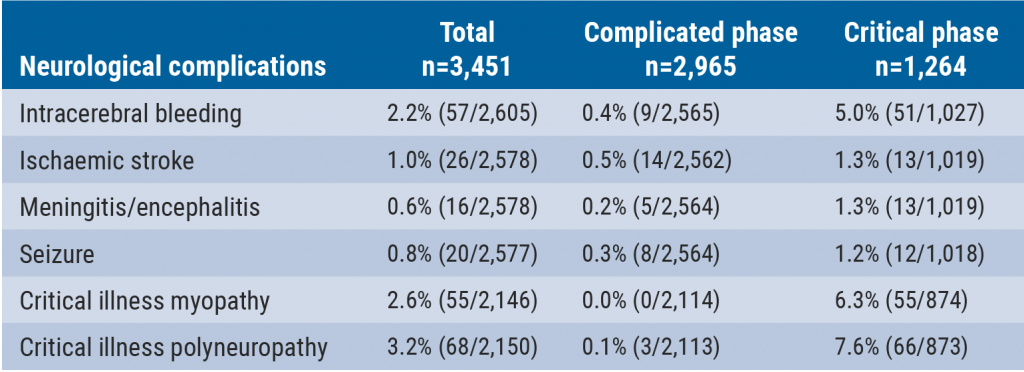https://doi.org/10.55788/c9f10dda
Emerging evidence has identified the so-called gut-brain axis that includes metabolic, endocrine, and neural signalling as communication between the intestine and the central nervous system. Thus, a study point of interest is a possible difference in the prevalence of dementia in those with and without IBD. Healthcare information on over 7.5 million US patients served as a data source to investigate the presence of dementia in older patients with IBD [1].
Between 2016 and 2022, the study included patients who were over 65 years of age, of whom 41,860 had a diagnosis of Crohn’s disease (CD) and 45,530 had ulcerative colitis (UC). These groups equalled 0.55% and 0.60% of the total study cohort. The results showed a significantly higher prevalence of dementia in IBD patients than in the general population (5.4%): CD 10.8% and UC 7.8% (P<0.001 for both comparisons).
Furthermore, the investigators strove to shed light on a possible difference in biologic- and non-biologic-treated IBD patients: 5,450 of the CD and 3,510 of UC patients received biologics. In terms of risk factor distribution in the groups with and without biologics, more than half of the CD and UC patients were women, 69%–88% had hypertension, and 27%–41% had diabetes. A history of smoking was present in 19%–27% of the IBD patients with and without biologic treatment.
Dementia was significantly less frequently found in the biologics group than in those not on biologics. The prevalence in CD was 4.2% with biologics and 11.7% without. The respective results for UC were 4.8% versus 8%, with a P<0.001 for all comparisons.
Dr Ahmed Eltelbany (Cleveland Clinic, OH, USA) and his fellow researchers highlighted that this is the largest individual study investigating prevalence of dementia in senior patients with IBD with and without biological therapy. They concluded that IBD patients over 65 years treated with biologics were significantly less likely to be diagnosed with dementia than those never treated with biologics
- Eltelbany A, et al. Impact Of Biologics Therapy On The Prevalence Of Dementia Among Older Patients With Inflammatory Bowel Disease: A Nationwide Population-Based Study. Poster Mo1545, Digestive Disease Week 2022, 21–24 May, San Diego, CA, USA.
Copyright ©2022 Medicom Medical Publishers
Posted on
Previous Article
« CD: Induction treatment with upadacitinib successful in clinical and endoscopic ratings Next Article
Too much hygiene: CD in later life? »
« CD: Induction treatment with upadacitinib successful in clinical and endoscopic ratings Next Article
Too much hygiene: CD in later life? »
Table of Contents: DDW 2022
Featured articles
Too much hygiene: CD in later life?
IBD
Antibiotic use elevates IBD risks in senior citizens
Too much hygiene: CD in later life?
Biologic treatment decreases dementia risk in senior IBD patients
CD: Induction treatment with upadacitinib successful in clinical and endoscopic ratings
IL-23 inhibition beneficial in maintenance treatment of UC
Positive outcomes for etrasimod in UC
Colonoscopy in UC: less pain and reduced recurrence with CO2 insufflation
Upper GI
Substantial increase of oesophageal cancer prevalence in the middle-aged
Cannabis users need more sedation medication for gastroscopy
Preterm delivery and NICU admission are associated with the development of eosinophilic oesophagitis
Dupilumab promising as treatment for eosinophilic oesophagitis
Other Highlighted Research
AI-assisted colonoscopy improves adenoma detection
Faecal microbiota transplantation: a safe procedure to treat recurrent Clostridium difficile infections
Oral microbes effective for prevention of recurrent Clostridium difficile infections
Octreotide therapy beats standard of care in GIADs
Improvement in hepatic steatosis but worse lipid profile after alcohol cessation
Normal BMI in NAFLD patients is associated with a higher risk of cardiovascular disease
COVID-19 increases the mortality rates of patients with ALD
Related Articles


September 23, 2021
ERS 2021 Highlights Podcast
January 12, 2022
Long COVID “brain fog” shares features with “chemo brain”
© 2024 Medicom Medical Publishers. All rights reserved. Terms and Conditions | Privacy Policy
HEAD OFFICE
Laarderhoogtweg 25
1101 EB Amsterdam
The Netherlands
T: +31 85 4012 560
E: publishers@medicom-publishers.com

